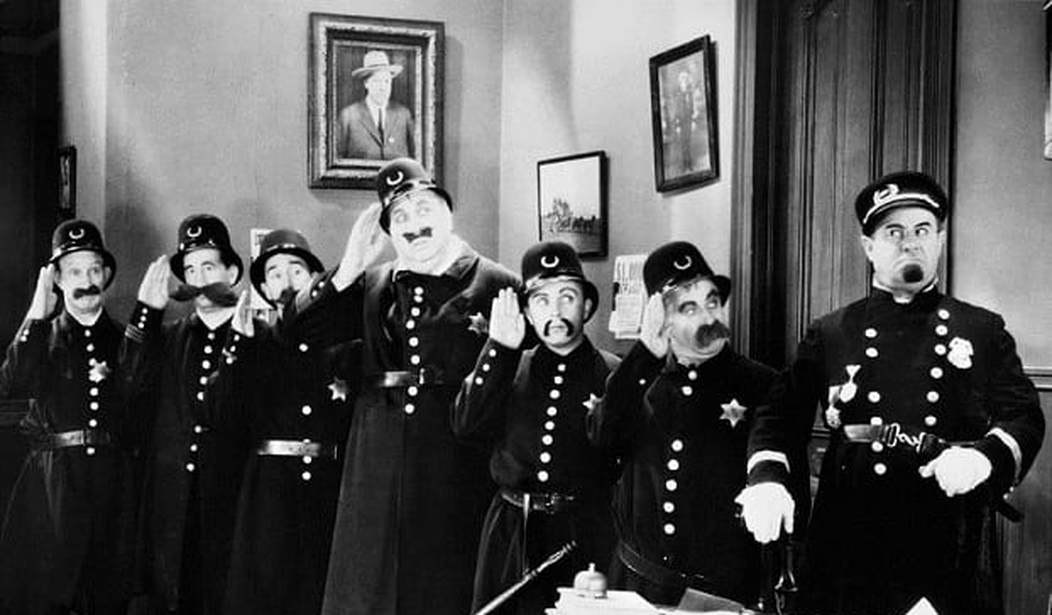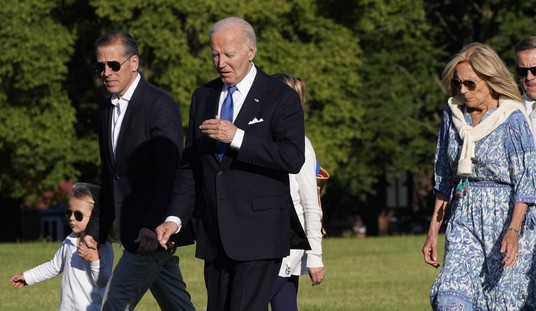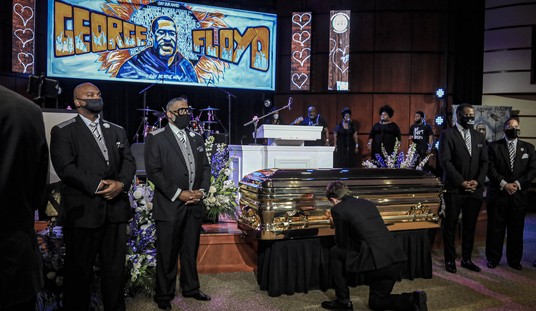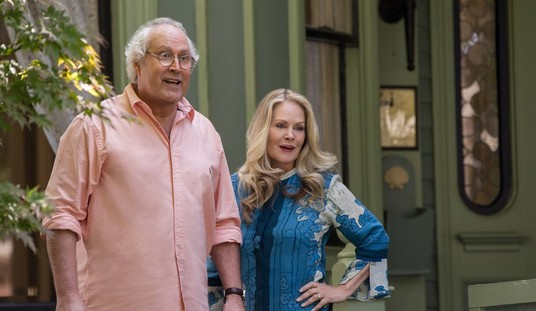
A bipartisan consensus is growing that serious changes are needed to America’s criminal justice system. Organizations – both conservative and liberal – are seriously studying issues related to policing, incarceration, rehabilitation, and deterrence, with a view towards reforms that will both respect the constitutional rights of citizens (including minorities) and also reduce crime. If you haven’t yet, visit Right on Crime’s website and check out what they are doing there – it is not senseless bleeding heart rhetoric, it is serious study of problems and solutions.
Some “conservatives” have begun to push back against this movement for reform, using tired rhetoric, ipse dixit, and scare tactics; but no actual research or facts. A good example of this phenomenon is this article penned by Trump water carrier and friend of white supremacists Katie McHugh at Breitbart.
The article starts off fine, noting that crime is increasing in some cities – particularly inner cities. However, the problem emerges when the article then asserts – with literally no foundation – that criminal justice reform is wholly or partly to blame for the recent spike in crime. The title of the article is “CRIME SURGES AS FEDS RESTRAIN POLICE, RELAX SENTENCES, REVIVE 1970S JUST BEFORE 2016 ELECTION.” The article gets more explicit from there:
The nation’s crime rate is reversing its post-1980s decline, and is reemerging as a critical political issue. “The hydra-headed scourges of crime, murder, and mayhem have returned… this grim reality could prove to be a political nightmare for the Democrats [because] for the Republicans, crime represents a well-trodden pathway to power,” according to Lloyd Green, the opposition-research lawyer on the George H.W. Bush’a successful 1988 campaign.
Yet Democrats and a significant number of Republicans are pushing for more lenient sentencing for convicted criminals and letting more criminals out of jail, and are considering new legislation to implement “criminal justice reform.”
For proof that “criminal justice reform” has led or contributed to the rise in crime, the article relies exclusively on the testimony of the above-mentioned Green, and Georgetown Law professor Bill Otis. However, neither source provides anything even purporting to be a fact that shows correlation (much less causation) between the current push for criminal justice reform and a spike in crime. Instead, we are treated to spectacular non sequiturs and discourses on pop culture:
Adjunct Georgetown law professor and a contributor to the Crime and Consequences blog, Bill Otis, criticized the vague word “reform,” saying it really means “reduction” in sentencing for convicted criminals.
“For about 25 years after 1960, crime in this country exploded,” he said,
The crime spike was garishly displayed via Hollywoods products, especially its vigilante movies — “Dirty Harry,” in 1971, “Death Wish” in 1974, and Taxi Driver” in 1976. Crime reached such levels that the crime movies became cult-movies and science-fiction movies, such as “The Warriors” in 1979 and “Escape From New York” in 1981.
But by the 1980s, “we decided to do something about it: We adopted sterner and mandatory sentencing, and mandatory guidelines for judges,” he said.
As fascinating as this discourse into 1970s and 80s pop culture is, it does not substitute for any sort of actual evidence that longer sentences and/or higher incarceration rates lead to reduced crime. It certainly suggests that public perception believes this to be true; that does not equate to it actually being true.
The actual evidence indicates that there is no clear relation between incarceration rates/longer sentences and crime rates. This finding is especially surprising given that “locking the door and throwing away the key” has, as one of its benefits, the complete removal of someone who has shown the clear disposition to commit crime from society. Recent studies have also conclusively shown that reducing certain kinds of incarceration rates actually correlates with a drop in the crime rate.
The fairest reading of a complex (and by this point relatively fulsome) set of data would indicate that, when it comes to incarceration rates and sentence lengths, there’s definitely a correlation up to a certain point, but then inevitably there comes a point of not only diminishing returns but actually negative returns. In other words, if no crime was punished by any incarceration at all, then crime would be worse – but if all crime was punished by life without parole, crime would be no better. The truth of the matter is somewhere inbetween, and conservative organizations are dedicated to serious study about where the correct midpoint lies.
All of this study is brushed aside in this article, however, by a positively [mc_name name=’Sen. Harry Reid (D-NV)’ chamber=’senate’ mcid=’R000146′ ]-ian cry of “Koch Brothers!”
Otis believes Republicans like Grassley and Lee support reductions in penalties because of advocacy by the libertarian Koch brothers. Furthermore, there’s “a very misguided stance among evangelical and committed Christians who think everyone deserves a second chance, and ‘There but for the grace of God go I,’” Otis said, characterizing the view as “baloney.”
What a fulsome and well-considered rejoinder!
But more to the point, how can the article advocate against sentencing reform (that hasn’t passed yet) and at the same time blame that sentencing reform for an increase in crime? Has the mere consideration of sentencing reform already led to a rise in crime? Are violent criminals watching CSPAN and getting the idea from committee hearings that at some point in the future, their sentences might be reduced, so they can go ahead and commit crime?
Perhaps most ironically, the article parrots the police union line that crime is going up because policing has become more dangerous, as a result of negative public attitudes towards police (which are, of course, completely unjustified):
Out of the million upon millions of interactions law enforcement has with the public, the media will pick out one or two instances that they can force into their oppression-racism-victim mold — and mislead the public about a supposed epidemic of prejudice. “They are not representative,” Otis said.
Ah, gotcha. So, the cherry-picked, media-driven examples of police interacting negatively with minority communities are not representative and the media narrative is unfair. However, the cherry-picked, media-driven examples of minority communities attacking police officers are very much representative and the media narrative in these instances is completely fair:
Several cops have been executed in public by attackers who think blacks are unfairly targeted by law enforcement, and to avenge the deaths of petty criminals such as Michael Brown and Eric Garner. In one such instance when NYPD officers Officers Rafael Ramos and Wenjian Liu were murdered by Ismaaiyl Brinsley, who killed himself shortly afterwards. Bystanders laughed and clapped, reports said. “Serves them right because you mistreat people!” shouted one bystander, according to an eyewitness.
The main problem with this narrative, of course, is that it is completely contradicted by facts. As we have discussed here before, attacks on police are down – way down – and policing is in fact safer than it has ever been. If anyone is to blame for the fact that police have retreated from policing inner cities, it is not Obama, the Koch brothers, or anyone else who is advocating for criminal justice reform, it is the police unions and their spokesmen who are deliberately and falsely creating the impression that it is more dangerous to police than it ever has been as part of a coordinated PR push to divert attention away from needed reforms.
I have no doubt that any reporter could, if they wanted, find an old codger sitting on their chair, shaking their fist at the kids and telling them to get off his lawn, who would say that the right way to deal with the crime wave is to let the cops do whatever they want, stop questioning (and/or filming) them, and lock everyone up and throw away the key. That’s fine, and there’s no doubt that this approach carries a lot of political appeal, which is why it’s held sway for so long.
However, we shouldn’t deceive ourselves into thinking that this parade of ipse dixits is a substitute for actual facts – or that it is conservative.













Join the conversation as a VIP Member